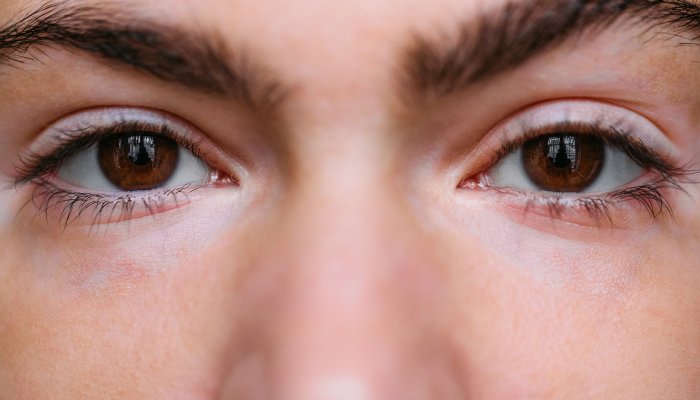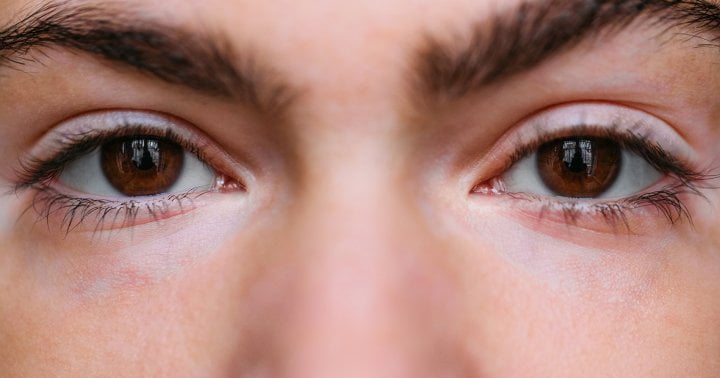A Neuroscientist On How Widening Your Gaze Can Help Anxiety

Brewer explains that when you feel anxious, your eyes tend to narrow. It has to do with somatic memory, he says, where your body posture can actually mimic your emotions. So when you’re feeling closed off (like, say, if you’re stuck in a whirlwind of anxious thoughts), your vision literally closes off, too. “That association gets deepened and formed more strongly,” says Brewer. It makes sense: Ever experienced tunnel vision?
That said, the trick to creating a more “open” state in the body, says Brewer, is to literally open your eyes. “You can open your eyes really wide,” he says, and “your body posture says, ‘Wait a minute: Are you sure you’re frustrated? Because your eyes are not suggesting that you’re frustrated.’ That is how deeply entrenched this is.”
He continues: “We can’t be closed and open at the same time, so it forces that binary choice.” Meaning, your body may subconsciously realize that feeling open, well, feels better than when you’re tightly wound up. As a result, you may start to notice that stubborn anxiety start to melt away.
By creating an open body posture, you’re also inherently kick-starting a sense of curiosity—which, as Brewer told us once before, is key for quelling anxious thoughts. Curious questions like, “What does anxiety feel like? How does it affect your body? What triggers you to think these anxious thoughts?” can help you gain a sense of awareness and notice when you’re caught in a negative feedback loop. And it all starts with opening your eyes.
This article was originally published by mindbodygreen.com. Read the original article here.




